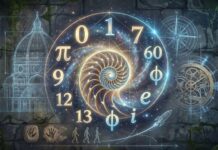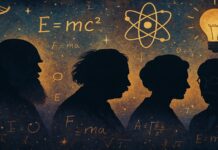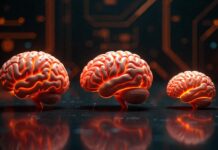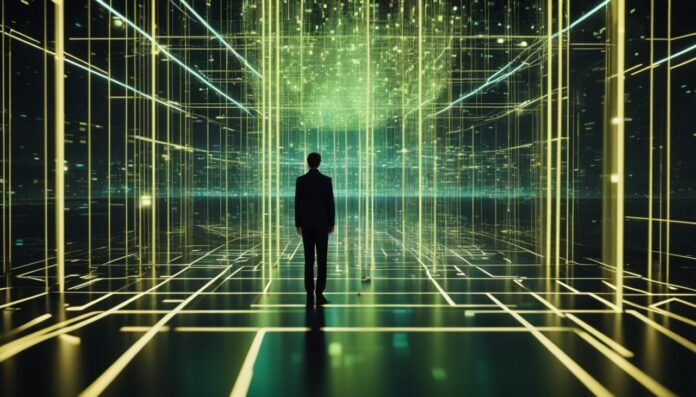
Singularity is a theoretical point in time when technological progress, particularly in artificial intelligence, reaches a level where it profoundly alters human existence.
It is a rather interesting topic.
Perhaps one of the most interesting topics for upcoming years and decades.
If achieved, it will most certainly completely change our lives and the whole world.
While some believe that singularity is inevitable and will happen very soon, others are very skeptical about its likelihood.
And so, join us as in this article, we will explore the top 5 predictions about when singularity might happen.
One of the earliest predictions about singularity was made by mathematician and computer scientist Vernor Vinge in his 1993 essay “The Coming Technological Singularity“.
Vinge predicted that by 2030, artificial intelligence would surpass human intelligence, leading to a rapid acceleration of technological progress.
Since then, many experts have made similar predictions, with some even suggesting that singularity could happen as early as 2029.
However, not everyone is actually convinced that singularity is a realistic possibility.
Some argue that there are fundamental limitations to artificial intelligence that will prevent it from ever surpassing human intelligence.
Others worry about the horrific implications of creating superintelligent machines that could potentially pose a threat to humanity.
One thing is certain: if the singularity is ever achieved, it will likely represent the biggest change for humans and technology ever!
Okay, so let’s begin with the top 5 predictions but we first need to briefly explain basic concepts.
Interesting fact: The concept of "singularity" in the context of technological advancement and artificial intelligence was first mentioned by mathematician John von Neumann in the mid-20th century.
Understanding the Technological Singularity
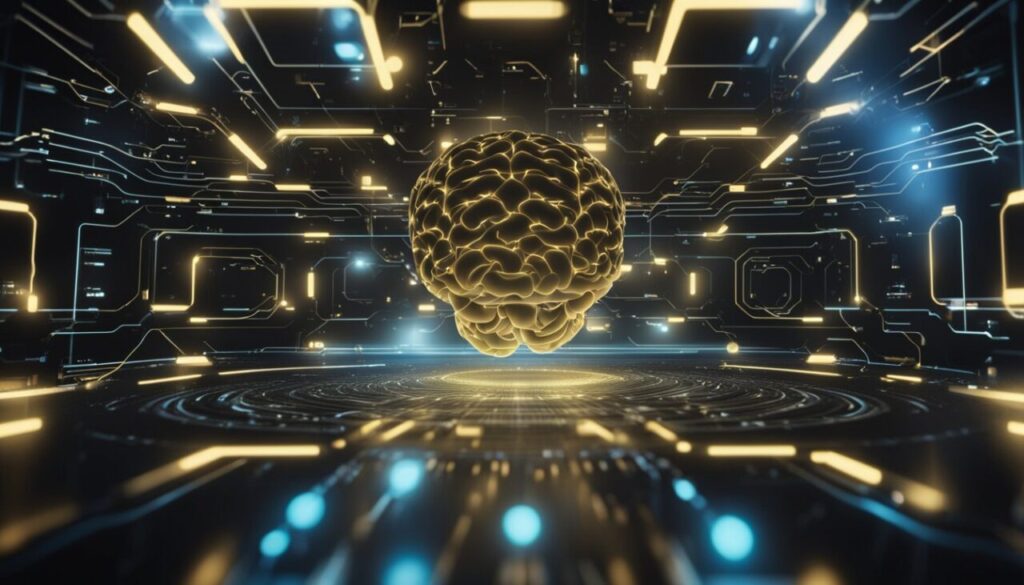
As mentioned, technological singularity refers to the hypothetical point in time when artificial intelligence (AI) surpasses human intelligence. This event is expected to trigger an unprecedented era of technological progress and societal change.
One of the key features of singularity is the concept of recursive self-improvement, where an AI system can improve its own capabilities and design, leading to an exponential increase in intelligence.
This could result in an AI system that is massively more intelligent than the smartest human being and could potentially solve problems that are currently beyond our comprehension.
Actually, it could get even worse, or better, depending on who you ask. Namely, if such progress is achieved, AI system could become smarter than all humans who ever existed combined.
Meaning – it would possess knowledge of everyone who ever lived.
Basically, AI would become some kind of GOD in the sense that it would be the all-knowing entity of everything that ever was and ever will be.
Now, that would be really astonishing but scary also.
Because, if the AI system is so powerful who could then say that we humans have control of that system?
Here we need to think completely out of the box. Forget all laws of physics, forget everything you think you knew about the internet, hacking, electricity…
Forget everything basically.
Because such a powerful AI system (entity?), would be able to find new laws of physics probably in a matter of minutes. Problems that are currently being solved for decades by the brightest minds on Earth, would become solved in a matter of days if not hours.
That could mean only 2 things:
- Enormous progress for humanity and we could all relax forever.
- Enormous regress for humanity as we could lose our sovereignty in one way or another.
Anyhow time will tell.
Okay, so now that we have a basic understanding of singularity (and potential consequences), let’s dive deeper into the top 5 predictions.
When could singularity potentially happen? In the next 5 years, 10 years, or 100 years?
Let’s see…
Top 5 Predictions for the Singularity
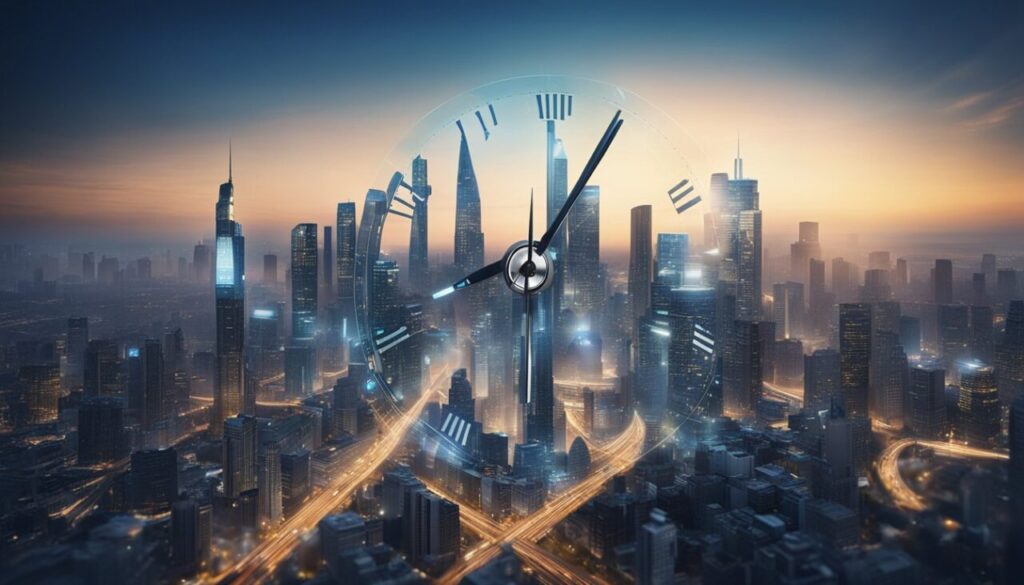
Singularity Already By 2029?
Some experts believe that the early singularity could happen as early as 2029.
Ray Kurzweil believes that by this time, artificial intelligence (AI) will have advanced to the point where machines will be able to match human intelligence.
Kurzweil predicts that this will lead to a rapid acceleration of technological progress, ultimately resulting in the Singularity in 2045.
So basically, that would not be “pure” singularity by the year 2029, but its early beginnings.
Currently, none of the experts or futurists forecast that singularity will happen as early as 2029.
However, no one predicted such a steep rise in large language models (ChatGPT, Bard). But when OpenAI released ChatGPT in November 2022, everything changed.
And so, the development and exponential growth of knowledge and learning could become so fast in upcoming years that we could actually knock on the door of singularity as early as 2029.
Interesting fact: Kurzweil has accurately predicted many technological advancements, including the rise of the internet and the use of handheld devices.
Ben Goertzel – 2031
Ben Goertzel, AI researcher and founder of SingularityNET, predicts that the Singularity will occur in 2031.
He believes that this will happen when AI systems become capable of recursively self-improving, leading to an exponential increase in intelligence.
Goertzel also believes that the Singularity will result in a merging of human and machine intelligence, creating a new form of consciousness.
Interesting fact: Goertzel has developed several advanced AI systems, including Sophia the Robot.
Ray Kurzweil – 2045
Ray Kurzweil also predicts that the Singularity will happen by 2045. He believes that by this time, AI will have advanced to the point where machines will be able to surpass human intelligence.
Kurzweil also predicts that the Singularity will result in a merging of human and machine intelligence, leading to a new era of technological progress.
Jürgen Schmidhuber – 2050
Jürgen Schmidhuber, AI researcher and co-founder of the company Nnaisense, predicts that the Singularity will happen in 2050.
He suggests that the emergence of superintelligent AI could have huge implications for human society, potentially leading to major societal disruptions, economic shifts, and changes in the nature of work and existence.
Interesting fact: Schmidhuber has won numerous awards for his work in AI, including the Helmholtz Prize for Machine Learning.
Singularity by 2100?
Some experts believe that the Singularity may not happen until the end of the century. This prediction comes from physicist and futurist, Michio Kaku.
He believes that while AI will continue to advance, but it will take much longer for machines to match human intelligence.
As with all others, Kaku also predicts that the Singularity will result in a merging of human and machine intelligence.
Interesting fact: Kaku has written several popular science books, including "The Future of Humanity" and "The Physics of the Impossible".
There are also some experts stating that Singularity will never become a reality. However, this scenario is rather unlikely.
Namely, if humans can develop something they most certainly will. Even though it could pose a big risk for humanity as a whole.
That never stopped us before.
Remember Project Manhattan?
Everybody does, especially people in Hiroshima and Nagasaki.
Well, the same dilemma could be put in front of teams currently developing systems that are early “granddads” of full-blown Singularity.
Conclusion
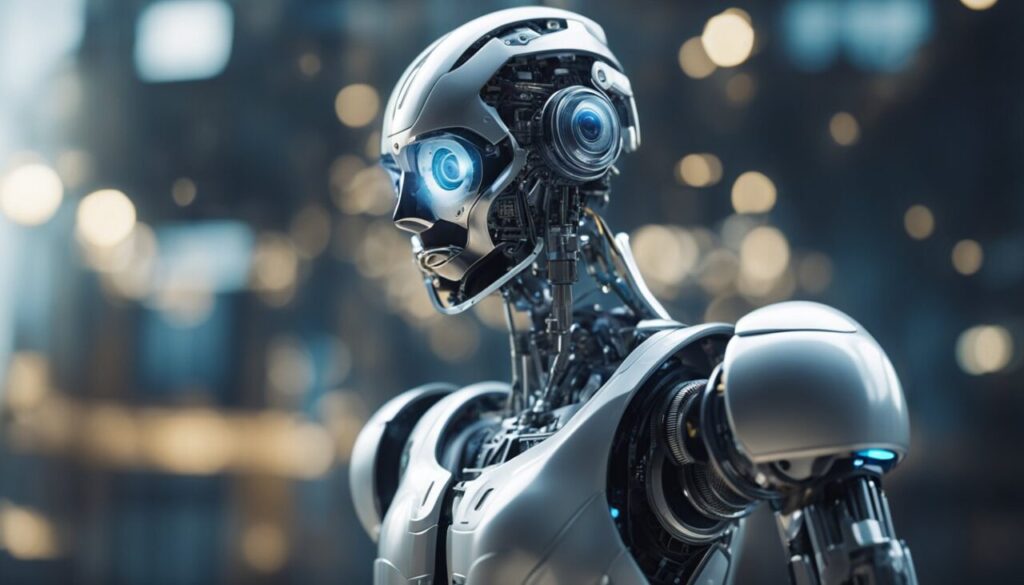
In conclusion, the singularity is an inevitable event that will occur in the future. It is hard to predict the exact time and date when it will happen, but experts have made some predictions.
Based on the top 5 predictions discussed above, it is clear that the singularity will probably happen sometime between 2045 and 2100.
However, it is important to note that these predictions are certainly not set in stone and may change as technology advances.
Many experts failed in their prognosis and forecasts for different technology advancements.
Namely, no one exactly predicted the Internet, as we’ve written in our article „Did Anyone Predict The Internet?“
However, many pieces of the puzzle are coming together, and in one way or another, the singularity seems like the end goal.
Or perhaps the middle goal, as the ultimate aim will be the full-blown matrix or simulation.
Just consider for a moment: the day we begin merging with machines and artificial intelligence is the day we cease to be 100% homo sapiens and become something we’ve already referred to in some of our previous articles.
We slowly evolve into Homo Techiens or Homo Technologicus.
















